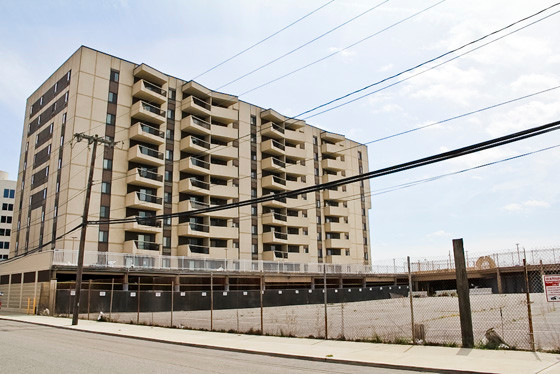Judge finds Long Beach liable for $131 million in Haberman case
City plans to appeal the decision
A Supreme Court judge in Nassau County Monday found the City of Long Beach liable for $131 million in damages in a case that goes back 31 years, brought by a Manhattan developer after the city revoked a building permit for a luxury condo project.
The developer, Sinclair Haberman of Haberman & Haberman, sought to recoup more than $50 million in damages and profits — as well as interest and legal fees — he claims he lost when Long Beach’s Zoning Board of Appeals revoked permits to build three oceanfront condominium buildings on Shore Road in 2003, a project that dates back to the 1980s. Haberman lawyers later argued that the city owed them triple the amount they originally requested based on lost revenue.
In 2015, the State Supreme Court granted Haberman a motion for a default judgment after Long Beach failed to file a timely response in 2012 to the suit’s amended claim for damages in a case that has been wending its way through the courts for 15 years.
After more than five years of litigating the damage claims, Nassau County Supreme Court Justice Jack Libert declared the $131 million judgment for Haberman on Monday.
City officials said in a statement that they plan on appealing the judgment.
“First and foremost, we are strongly considering an appeal of the decision because, respectfully, we believe it should be reversed,” said Long Beach City Manager Donna Gayden said. “So there is no immediate impact to our residents in terms of their property taxes or City services.”
She added that financial consultants and both internal and external legal counsel to the City are examining all potential pathways to mitigate the impact to the City and its taxpayers if the damage award is not ultimately drastically reduced or overturned.
“I want our Long Beach taxpayers to know that we are studying all facets of this issue and will do everything we can to minimize its financial impact on the City and its residents,” Gayden said. “This case has been hanging over the heads of our City’s residents for the past three decades, waiting for financial resolution, especially since 2017 when the City lost the case.”
In 2014, the City Council scrapped a settlement that former Corporation Counsel Corey Klein had reached with Haberman a year earlier. That agreement would have allowed Haberman to seek the zoning board’s approval for a revised project on Shore Road that would include two 19-story apartment buildings instead of the previously proposed trio of 10-story structures. If the zoning board were to deny the application, the developers could continue with the lawsuit. If the board were to grant the application, Haberman would drop the suit. However, several board members said Klein was not authorized to make that agreement.
The court’s decision now puts the city in a tough financial position as it may have to bond to pay the damages.
“This is a very old matter that far predates the involvement of the current members of the Council, city leadership, and almost all of the other parties that have been involved over the three decades of litigation,” City Council President John Bendo said in a statement. “It is another challenge from the past that we inherited and now must deal with. We will be examining all available options to safeguard the financial interests of our residents to the greatest degree possible.”
Haberman's attorney, Steve R. Schlesinger, said “The City was foolish not to settle when they had numerous opportunities right up to start of the trial,” in a statement.
"The City of Long Beach tried for 31 years to destroy Haberman’s right to develop his own property in conformance by breaching three written contracts, two of which were court orders,” Chris McGrath, attorney for Haberman later added. "The City then defaulted on Haberman’s lawsuit, knowing they had no defense to breaching these contracts and then decided not to offer a single dollar to this man for 15 years of litigation. Why? because no elected official wanted to settle the case for fear that they would lose their next election. The result to the taxpayers were hundreds of thousands of dollars in legal fees and millions of dollars and it is not over yet."

 49.0°,
Fog/Mist
49.0°,
Fog/Mist 




